This has been the best summer for RPGs and I want to live in it forever
I'm going to hide from autumn by starting another playthrough of Baldur's Gate 3.

Like many of you, I suspect, each year sees me juggling more and more games in an effort to play all of the good stuff and avoid the dreaded FOMO, and when 2023 dawned I was well and truly in burnout mode. But it turns out that the solution to this was a summer fully immersed in some gargantuan RPGs, and I now find myself refreshed and once again excited about videogames.
We've been inundated with RPGs of all shapes and sizes these last few months, but a quartet of heavy-hitters has dominated our hobby: Diablo 4, Baldur's Gate 3, Starfield and Cyberpunk 2077: Phantom Liberty. Each of them long-awaited, from prestigious studios and part of a long legacy of mostly beloved games. The latest in the most popular ARPG series of all time, a sequel to a 20-year-old CRPG that we still talk about today, the first brand-new game from the master of sandbox RPGs since the Elder Scrolls began, and a second chance for a lavish but somewhat disappointing tabletop adaptation—big deals, the lot of them.
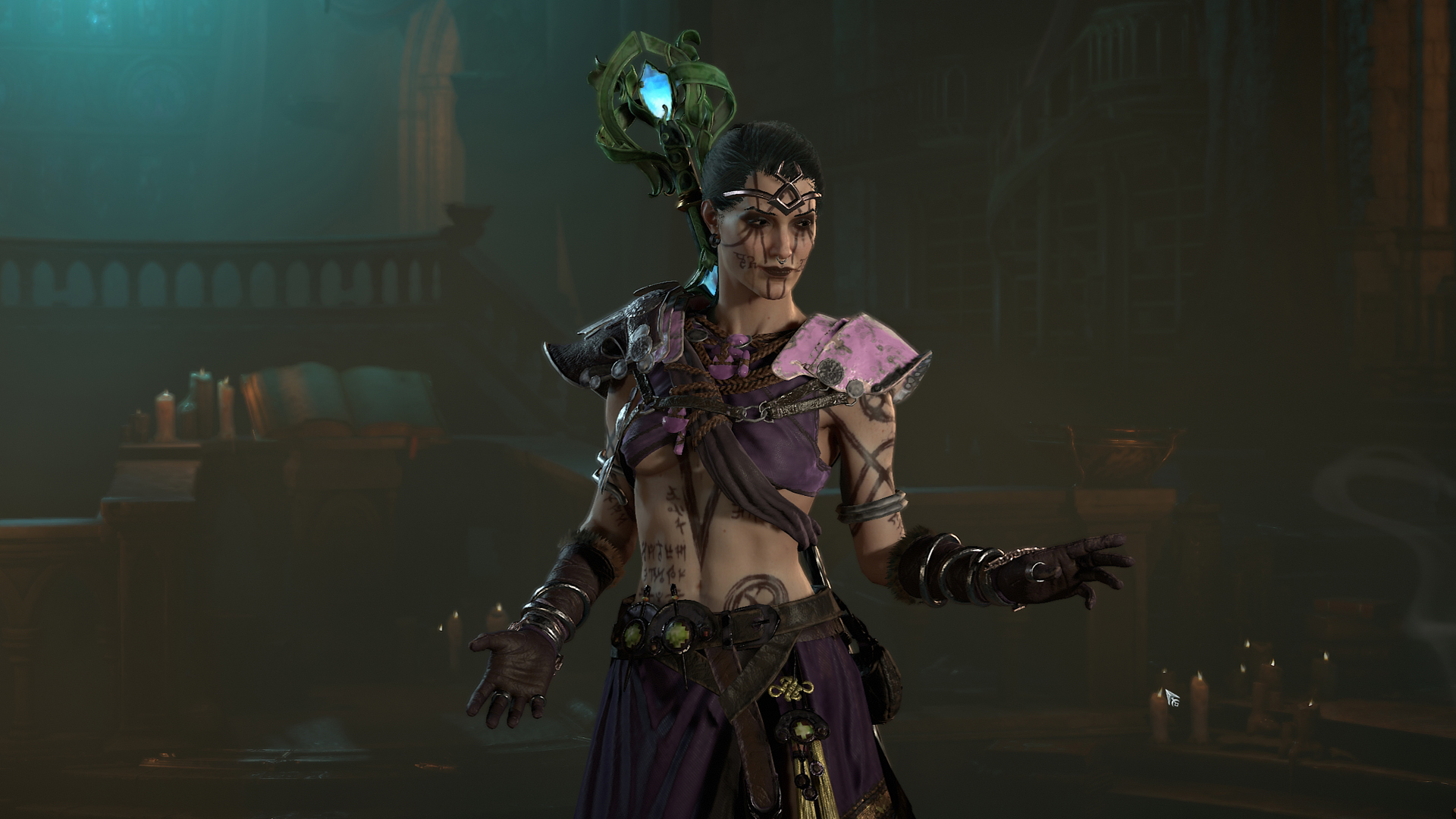
Within these four games is something for nearly every RPG-lover, whether you like to simply smack monsters around with your mates or you want an epic yarn you'll be playing for months. I can't pretend I ended up loving them all, but there's no denying that each has proved to be an ambitious, mammoth undertaking that's kept their legions of fans exceedingly busy this summer, and that's something to celebrate.
Diablo kicked things off, with a basic loop that remains exceptionally compelling. Murdering hordes of monsters is still just good wholesome fun. The return to grisly, gothic horror was also much appreciated, as was a central villain who was more than just large and angry. I could have done with more distinct locations and more flexibility when it came to character builds—Path of Exile remains unrivalled in this regard—but what we got was still a polished, tight ARPG that I'm looking forward to watching develop, once Blizzard figures out how to make its seasonal structure more compelling.
"The fundamental experience of playing Diablo 4, of clicking on demons and watching items pop out of them, activates my neurons in a way that's almost embarrassing to admit," Tyler C wrote in his Diablo 4 review, where he awarded it a score of 85%, and that's really what's important: is it still fun to click on monsters and watch them explode? The answer is yes.
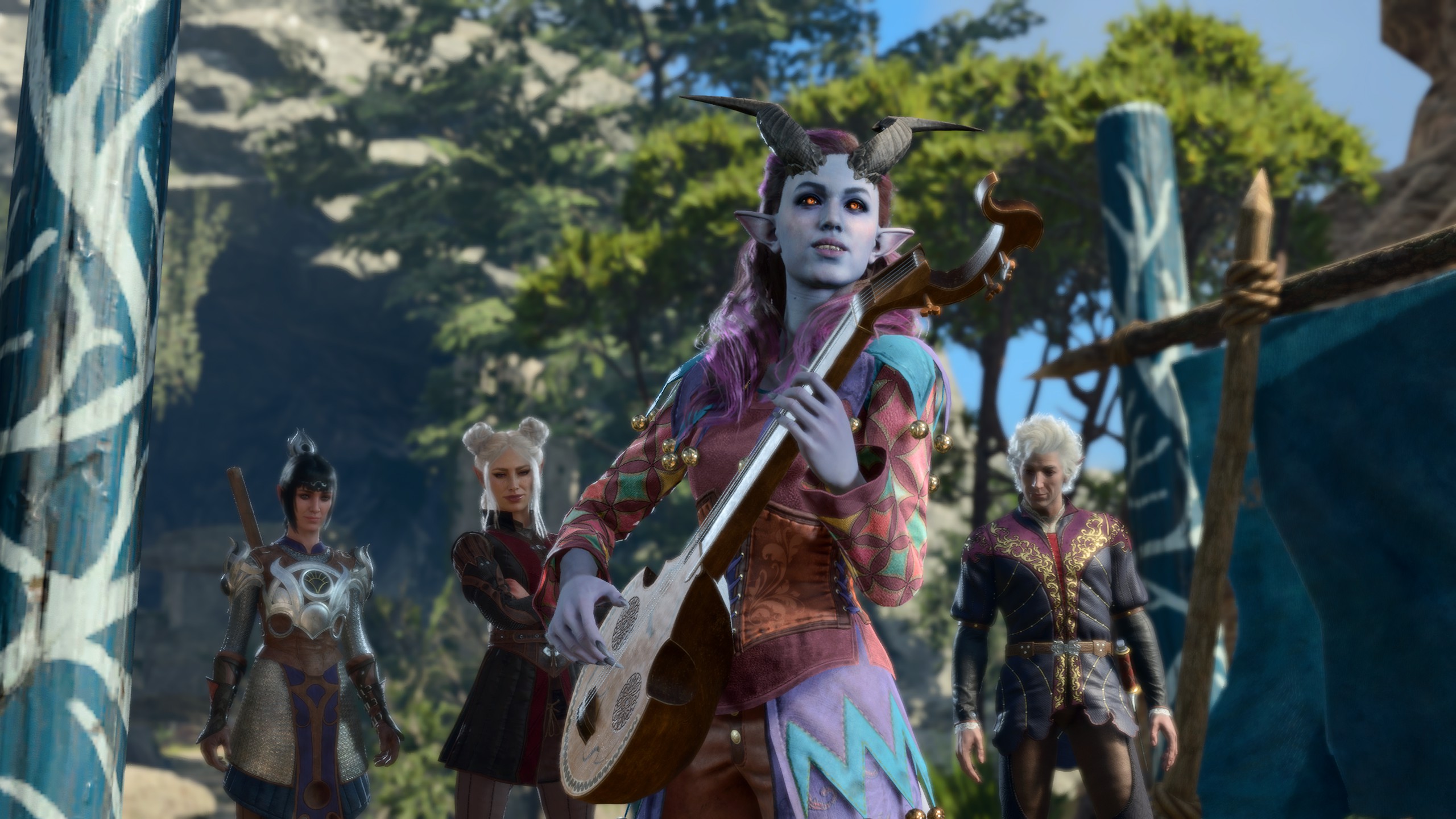
The summer really peaked when I got to return to Faerun. Baldur's Gate 3. Bloody hell. I've long been an admirer of Larian Studios. I've been playing its games since the days of the original Divinity, got to watch the team get Original Sin 2's Kickstarter over the finish line in its office in Ghent, and was among the first journalists to get the skinny on Baldur's Gate 3, where I got to chat to studio founder Swen Vincke about his big plans. So I've been following this saga for a damn long time. And with Baldur's Gate 3, the studio pulled off something quite magical.
The summer really peaked when I got to return to Faerun.
I put 160 hours into my Baldur's Gate 3 review before I gave it a score of 97%, the highest we've doled out in 16 years. And those previous high scores were given when the US and UK teams were separate entities—in the UK we've never given a game a score that high before. So yeah, I rather liked it. I'm convinced that if I didn't live all the way up here in Scotland, Editor-in-chief Phil would have come to my home and forced me to go to bed, I was spending so much time playing. But I had goblins to slaughter and a god to tell off—I was busy, OK?
Keep up to date with the most important stories and the best deals, as picked by the PC Gamer team.
A game like this isn't something that comes around very often, marrying exceptional writing and characters with some of the best RPG systems around. It's proof you can have it all. Which led to a lot of frankly embarrassing gushing in my review: "After reviewing a game this ridiculously large, there's usually a sense of relief when I'm done. But not here. To be honest, I could have easily reached the game's climax days earlier, but I just couldn't bring myself to call it. I felt compelled to see as much as humanly possible in one playthrough because it's all just so bloody incredible."
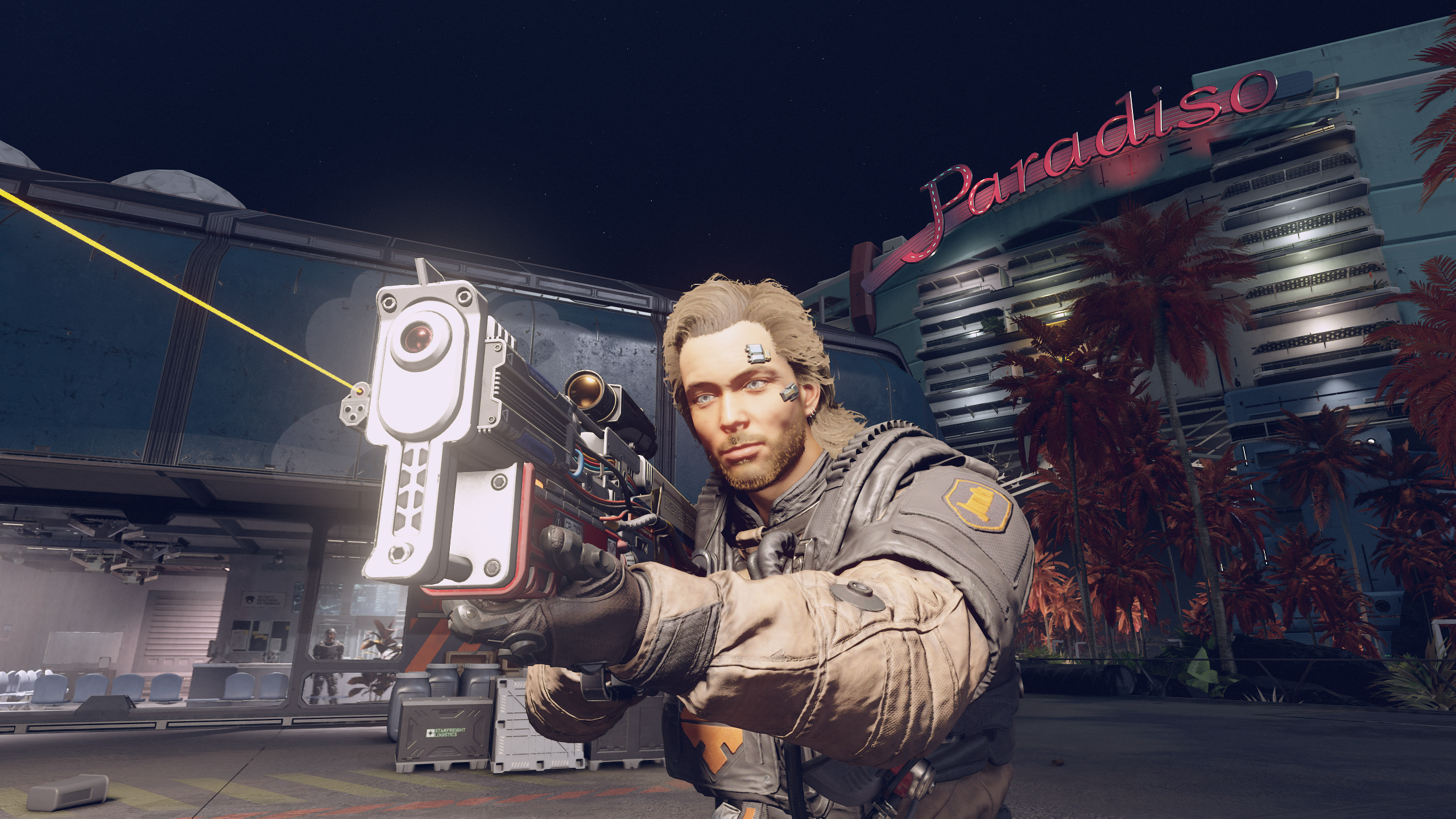
Coming right after Baldur's Gate 3, Starfield had its work cut out for it, and sadly we never quite saw eye to eye. I firmly believe that Bethesda could have made a much better game had it reined in the needlessly massive scale a bit, but I still can't help but respect the studio's ambition, if not its vision. And there's still a great sandbox in there, which players have been doing some incredible things with—especially when it comes to experiments with milk cartons. I've taken a break from it after 60 hours of space adventures, but I suspect I'll be drawn back in once the modders have had more time with it.
"I immediately wormed my way into the criminal underworld when I saw a drug smuggler being arrested: before long I'd met his boss and had his job, and began making illegal drug shipments myself," Chris confessed in his 75% Starfield review. "Between drug runs I became a low-level operative for mega-corporation Ryujin Industries, dabbling in corporate skullduggery and industrial espionage while still sidelining as petty drug mule."
Off the beaten track and away from the weird cosmic archaeological nonsense of the incongruous main quest, there's quite a bit to like about Starfield. Bethesda hasn't really developed when it comes to the writing side of things, but it still knows how to set up a compelling premise and get you engaging with its systems in unexpected ways. And boy has it generated a lot of discourse. It's sure had an impact.
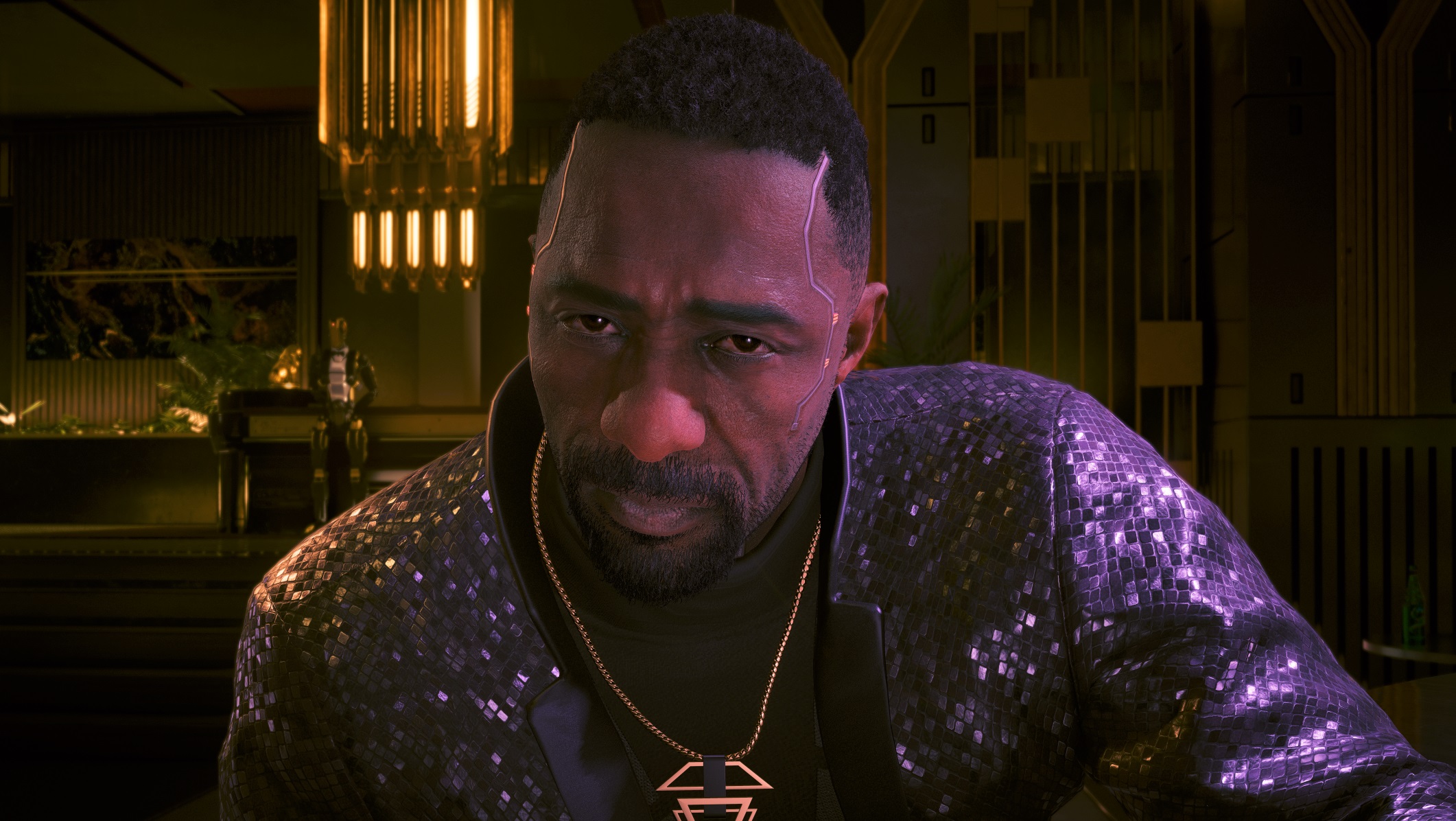
Playing three massive RPGs in quick succession did make me worry I was losing steam. How much can one mortal man really take? But summer had one more time-devouring monster waiting for me: Cyberpunk 2077. Again. Did I have enough energy left, I wondered. It turns out that CD Projekt Red's last hurrah for its gratuitous crime caper has been the perfect end to this RPG summer. Who doesn't love to go out on a tale of redemption?
Who doesn't love to go out on a tale of redemption?
"Phantom Liberty is an extra-refined bite of Cyberpunk 2077—an expansion pack's expansion pack," Ted said in his 87% Phantom Liberty review. "It doesn't reinvent the game as a whole, but it's a fantastic final outing for V and Night City, as well as one of the best individual stories CD Projekt Red has told to date." But there's more to this final major update to the 2020 RPG.
Just before Phantom Liberty dropped, Update 2.0 appeared, revitalising the core game. Cyberpunk 2077's brilliant stories went largely untouched, but nearly every other part of it was tweaked and refined, from the police system to character progression. I really enjoyed the game at launch, putting 120 hours into it, but a lot of that enjoyment came in spite of its many issues: both technical and game design. I felt connected to my version of V because I cared about her story, but I never felt much attachment to her at a mechanical level. I barely thought about builds—I just made sure she was good at swinging her katana.
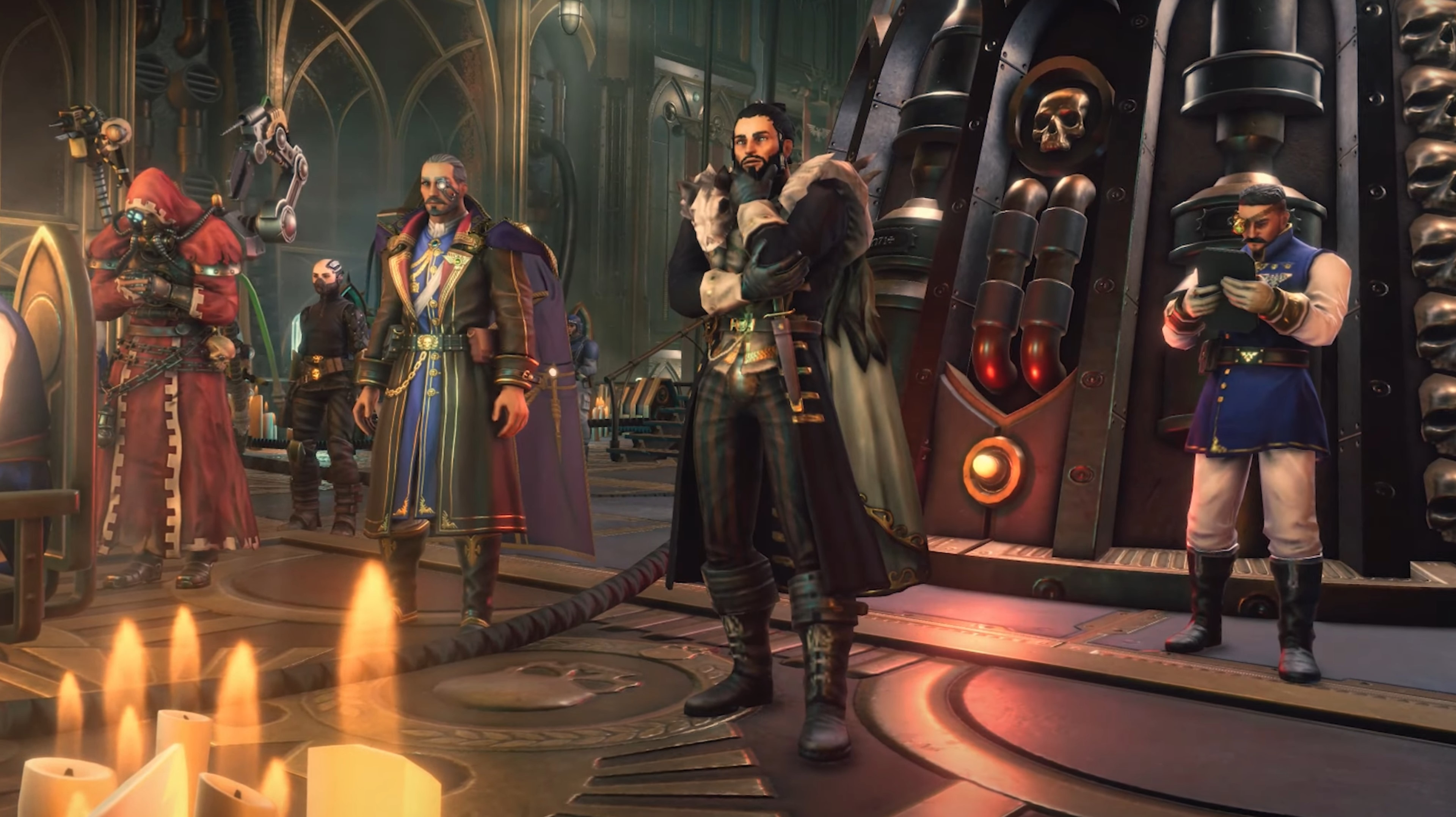
In 2.0, I've respecced multiple times (using my one-time ability respec 40-hours in, and the infinite perk refunds many, many times) because I keep coming up with new ideas or finding myself desperate to try new things. Developing V, and experimenting with Cyberpunk's considerably more polished systems, has been a pure delight as I smash my way through Night City. I keep being distracted by getting into fights I could easily avoid simply because I adore seeing my build choices reflected in the chaos I'm sowing throughout this neon dystopia.
My Cyberpunk playthrough is still ongoing because it's taken ages for me to get to the Phantom Liberty stuff; I was just having so much fun with 2.0. So my summer romance with RPGs is, thankfully, yet to end. And I've already got another playthrough of Baldur's Gate 3 lined up. Please, just leave me here, and allow me to escape the impending cold weather and rain by sitting next to my very warm PC.
That said, I'm still looking forward to what's yet to come, particularly Warhammer 40,000: Rogue Trader, which is sure to keep me busy fighting xenos and making shady deals across the universe after it launches on December 7. After Baldur's Gate 3, it's going to be hard to make room in my heart for another CPRG, but the substantial gap between them should help. And while Owlcat's last RPG, Pathfinder: Wrath of the Righteous, didn't come close to making my feel all tingly in the way BG3 did, it was a significant improvement over Kingmaker, so I'm optimistic that the studio's detour into the grimdark future will give me something to get excited about.
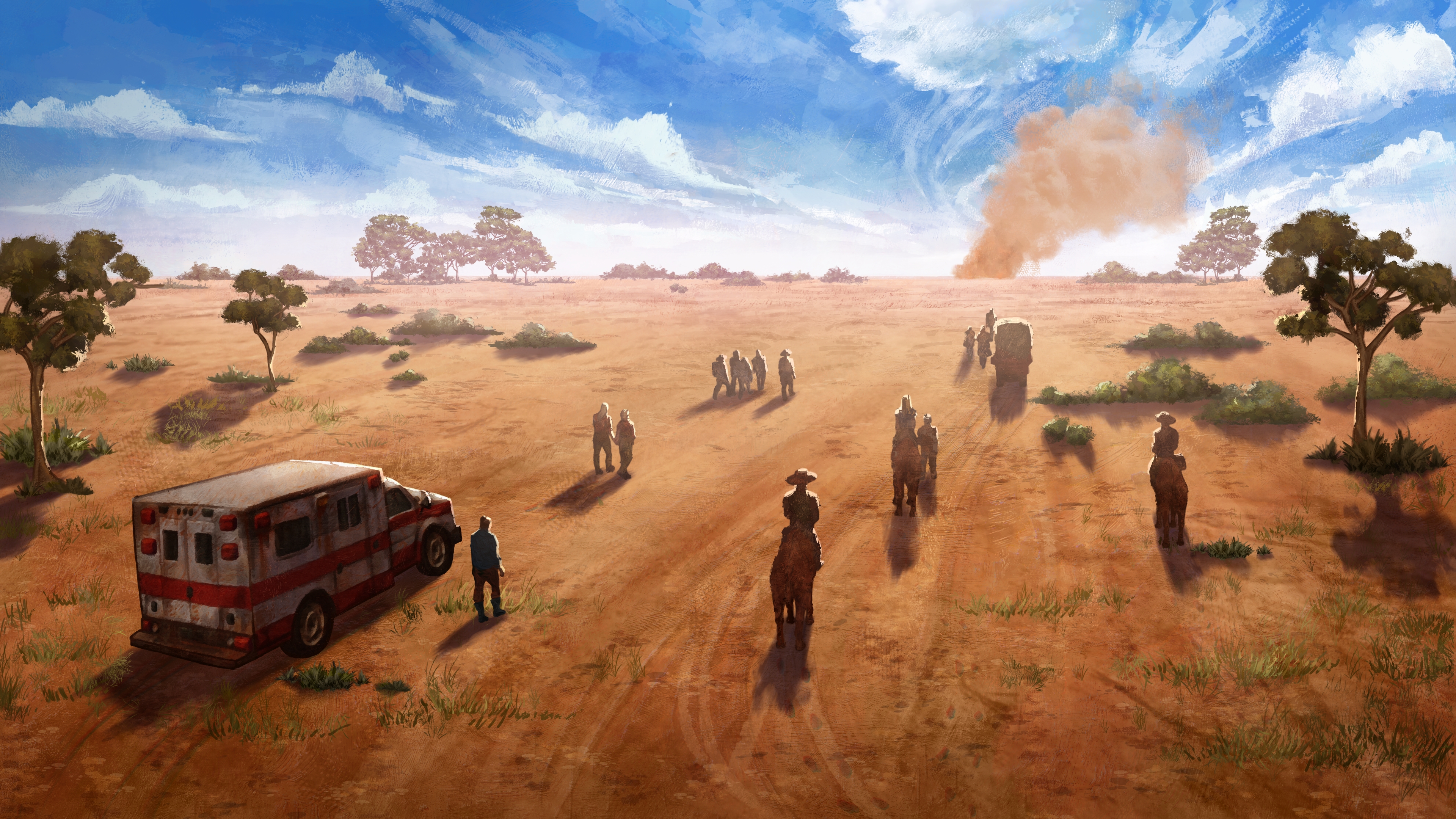
I've also got my eye on Broken Roads, which gives off Aussie Fallout vibes and has drawn some inspiration from the exceptional Disco Elysium—not quite to the extent that it swaps combat for philosophical and moral debates, mind you, though publishers did actually ask the team to do that. It's stuck to its guns, however, and is developing a more traditional RPG with plenty of action. That's due on November 14, for which I will be clearing my calendar.
So I'm still pumped about what's just down the road, but I suspect we won't be seeing a summer this perfect for the RPG-obsessed any time soon. Maybe that's for the best, though. It leaves us room for travel and family and all that other good stuff. Oh, who am I kidding? The only family I need is my RPG party. Yes, I have a problem.

Fraser is the UK online editor and has actually met The Internet in person. With over a decade of experience, he's been around the block a few times, serving as a freelancer, news editor and prolific reviewer. Strategy games have been a 30-year-long obsession, from tiny RTSs to sprawling political sims, and he never turns down the chance to rave about Total War or Crusader Kings. He's also been known to set up shop in the latest MMO and likes to wind down with an endlessly deep, systemic RPG. These days, when he's not editing, he can usually be found writing features that are 1,000 words too long or talking about his dog.

